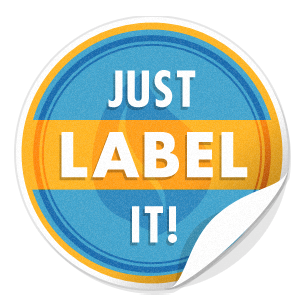Washington, DC–(ENEWSPF)–October 17, 2014. The Vermont Attorney General’s Office, as part of a continuous effort to label genetically modified organisms (GMO) and increase transparency for consumers, released a draft of the rules written to govern the state’s law to require the labeling of food produced with genetic engineering.
 The nine page rulemaking, describe a range of issues, from the definition of “food” and “genetic engineering” to the required disclosures that will read “Produced with Genetic Engineering” or “Partially Produced with Genetic Engineering.”
The nine page rulemaking, describe a range of issues, from the definition of “food” and “genetic engineering” to the required disclosures that will read “Produced with Genetic Engineering” or “Partially Produced with Genetic Engineering.”
The attorney general’s office has scheduled three public hearings for next week to give the public the opportunity to comment on the law. Members of the public can also submit a comment via email.
Attorney General William Sorrell said his office is moving to write the rules as quickly as possible so that the industry can prepare before the law takes effect in 2016.
The law, which was signed by Governor Peter Shumlin in May and is the first of its kind in the nation, has been met with substantial backlash. The state is currently involved in a legal battle by major trade associations, including Grocery Manufacturers of America (GMA). In a statement, GMA has called the labeling requirement “a costly and misguided measure.” However, new analysis of published research repudiates this claim; the median cost to consumers of requiring labeling of genetically engineered (GE) food is only $2.30 per person annually. The report was commissioned by Consumers Union, the policy arm of Consumer Reports, and conducted by the independent Portland-based economic research firm, ECONorthwest. Additionally, genetically engineered foods are already required to be labeled in 64 foreign countries, including many where American food producers sell their wares. Labeling has not increased food prices in those countries, according to Consumers Union.
The Food Fight Fund allows individuals to donate to defend the law when it is challenged in court.
Across the U.S., grassroots groups are pushing for the introduction of GE labeling legislation in over 25 states, with GMO labeling requirements on the ballots for both Oregon as well as Colorado in November. A national GE labeling bill also remains in both houses of Congress, but has yet to be voted on in committee in either the Senate or the House. National GE labeling efforts are being spearheaded by the Just Label It! Campaign and has garnered thousands of supporters across the country.
Other states to pass legislation include Maine and Connecticut; however, these states contain a “trigger clause” that delays implementation until similar legislation is passed in neighboring states, including one bordering state in the case of Connecticut. Both California and Washington state labelling laws were proposed in recent years, but these ultimately failed after millions of dollars of corporate spending entered into the equation. Polls and surveys show overwhelming public support for labeling of genetically engineered foods, yet the same food and chemical companies continue to ignore consumers fight for the right to know every chance they get.
Beyond Pesticides believes that consumers have a right to know whether the foods they buy contain GE ingredients not only because of concerns over the safety of eating GE food, but also because of the direct and indirect effects of GE agriculture on the environment, wildlife, and human health. GE agriculture is associated with the increased use of herbicides that GE crops are developed to tolerate. Repeated spraying of these herbicides, particularly glyphosate, the active ingredient in Roundup, destroys refuge areas for beneficial insects such as the monarch butterfly and leads to resistance in the very weed species that GE technology is intended to control. Despite rampant glyphosate resistance, and the presence of organic management practices that are more protective of human health and the environment, the agrichemical industry continues to resort to increasingly toxic combinations of chemicals. Recently, the U.S. Environmental Protection Agency (EPA) announced that it has registered Enlist Duo®, officially approving the sale and use of a new wave of genetically-engineered (GE) 2,4-D tolerant crops and their accompanying herbicide formulations.
Buying organically labeled food is one of the best ways to stop GE ingredients from being purposely added during food production and handling. Under organic certification standards, GE organisms are prohibited, although because of USDA policies that allow the proliferation of GE crops, organic production is subject to genetic drift contamination. For this and many other reasons, organic products are the right choice for consumers. For more information on GE foods and labeling issues, see Beyond Pesticides’ Genetic Engineering website. You can also help support the Vermont labeling law by donating to the Food Fight Fund.
Sources: Times Argus, http://www.beyondpesticides.org
All unattributed positions and opinions in this piece are those of Beyond Pesticides.








